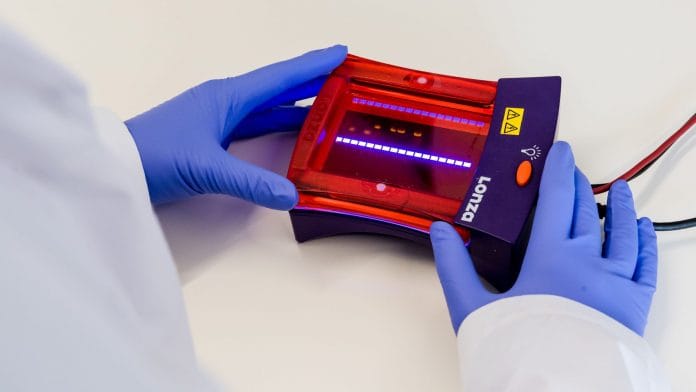London: Drugmakers sprinting to deliver potential Covid-19 vaccines say they’re facing a new hurdle: declining infection rates that could make it hard to test their shots.
If the disease ebbs further in some regions, not enough people will be exposed to the coronavirus to make studies possible, AstraZeneca Plc Chief Executive Officer Pascal Soriot said Thursday in a briefing with journalists. Researchers may have to consider deliberately infecting healthy volunteers with the virus, though it’s still too early to take that step, he said.
“The problem we all have is we are running against time,” Soriot said. “We see already in Europe the disease is declining. It’s still going in the U.K., still going in the U.S. But very soon the disease intensity will be low, and it will become difficult, so we have to move very quickly.”
Astra, which is helping scientists at the University of Oxford develop a vaccine, has joined dozens of companies including Sanofi, Johnson & Johnson, GlaxoSmithKline Plc and Pfizer Inc. working on experimental pandemic shots. While lockdowns have helped nations curb infection rates, governments need to halt the virus to fully reopen businesses and schools.
Some transmission of Sars-CoV-2 is key to determining whether vaccines work. Now, researchers are contemplating where and how they can undertake studies with the best chance of success.
“The disease is now moving to other parts of the world,” especially countries in the southern hemisphere such as Brazil and South Africa, Paul Stoffels, Johnson & Johnson’s chief scientific officer, said. He and Soriot spoke in a video briefing held by the International Federation of Pharmaceutical Manufacturers and Associations, an industry group.
For the company’s planned late-stage trials aimed at proving its vaccine is safe and effective, “hopefully that can be done in the north,” he said. “If not, we’ll have to go to the south.”
While studies in which scientists infect subjects, called challenge trials, pose significant potential risks, they could be considered in dire situations and with certain disclosures and protections, the World Health Organization said earlier this month.
“The ethical issues around this are yet to be resolved,” Soriot said. “I suspect maybe at some point it will be done, but we feel it’s too early because we still have a chance to show efficacy in a normal way.” – Bloomberg
Also read: Why vaccines should not be immune to market forces






